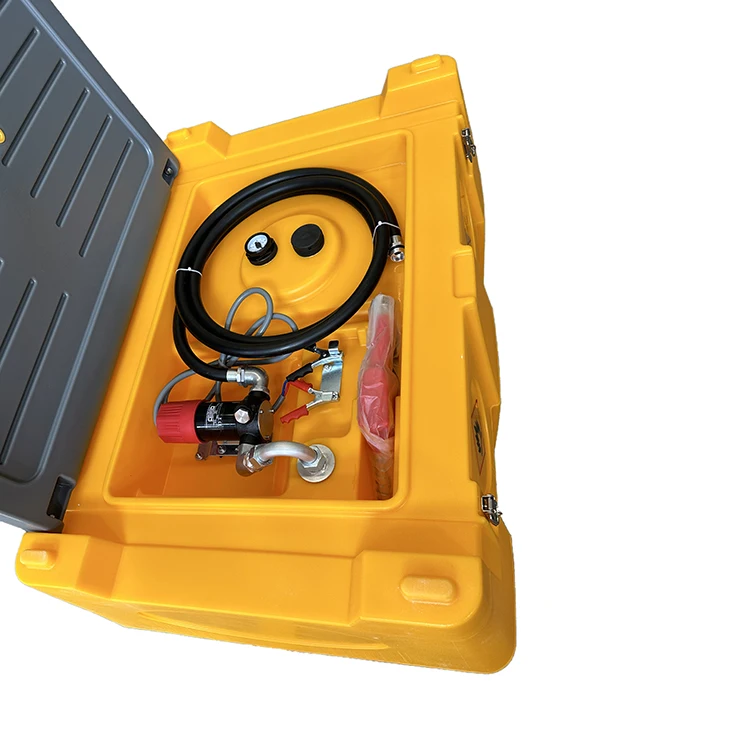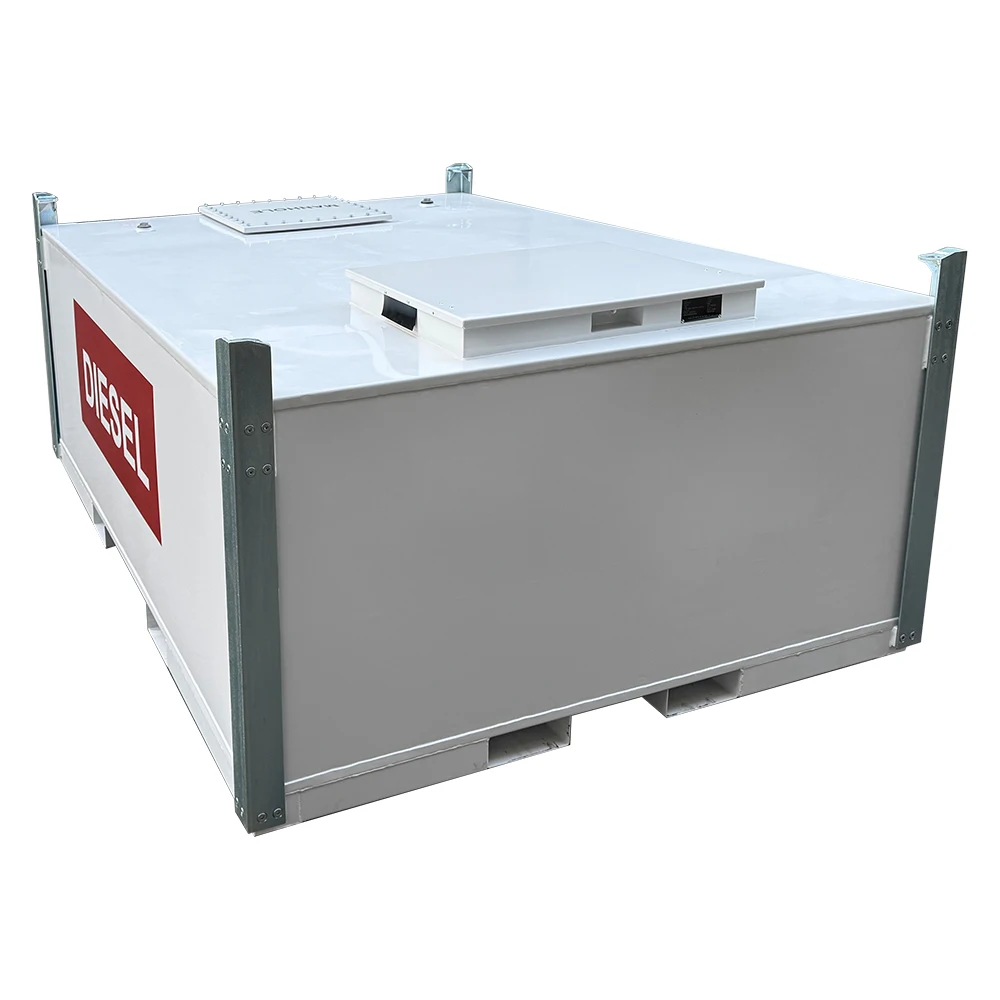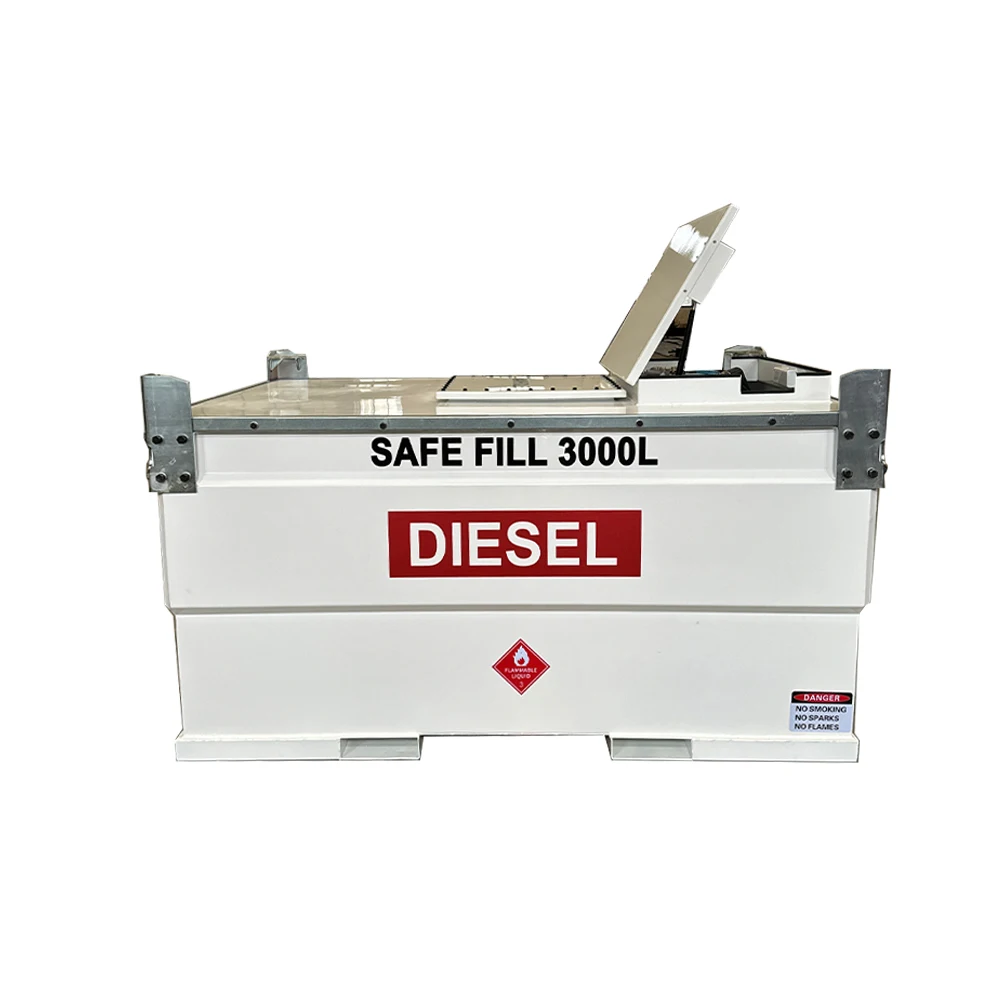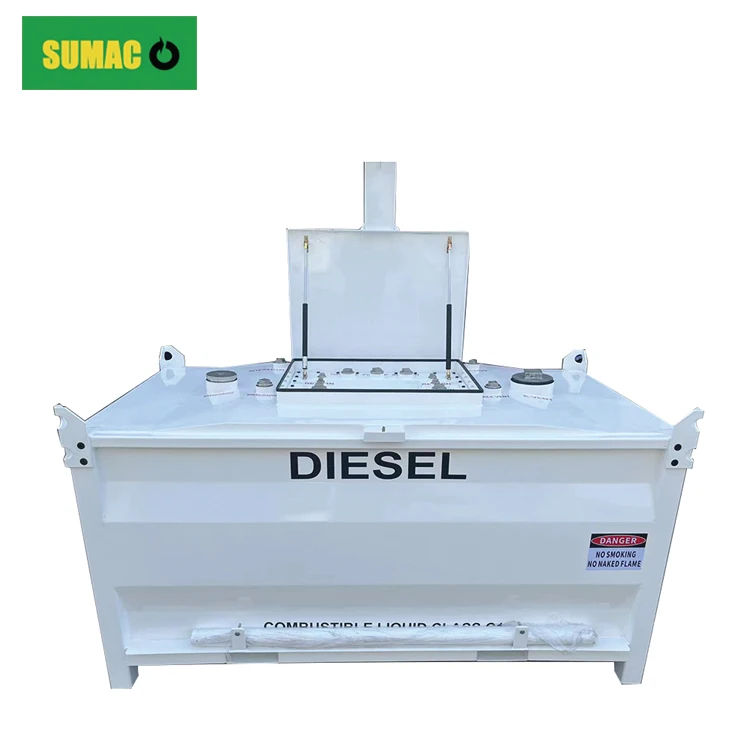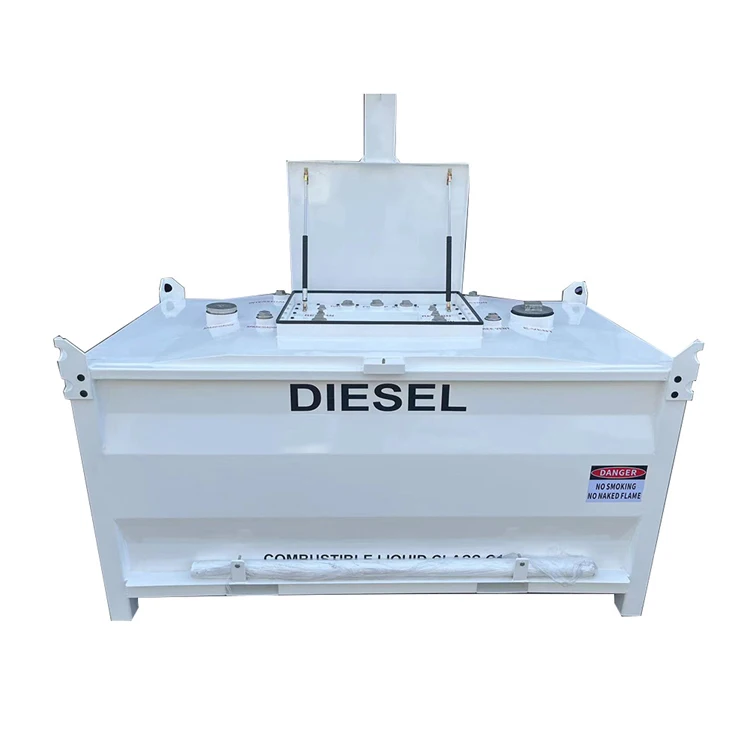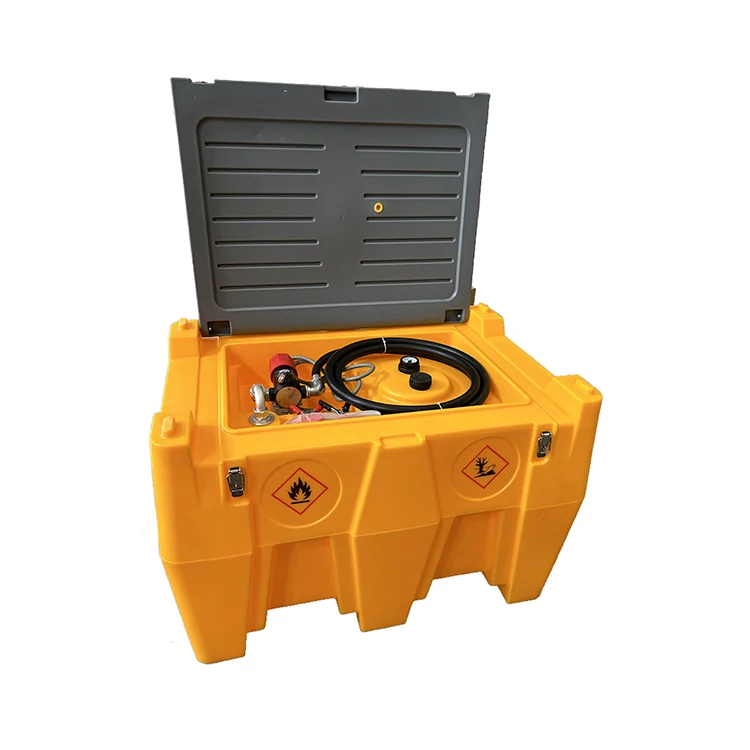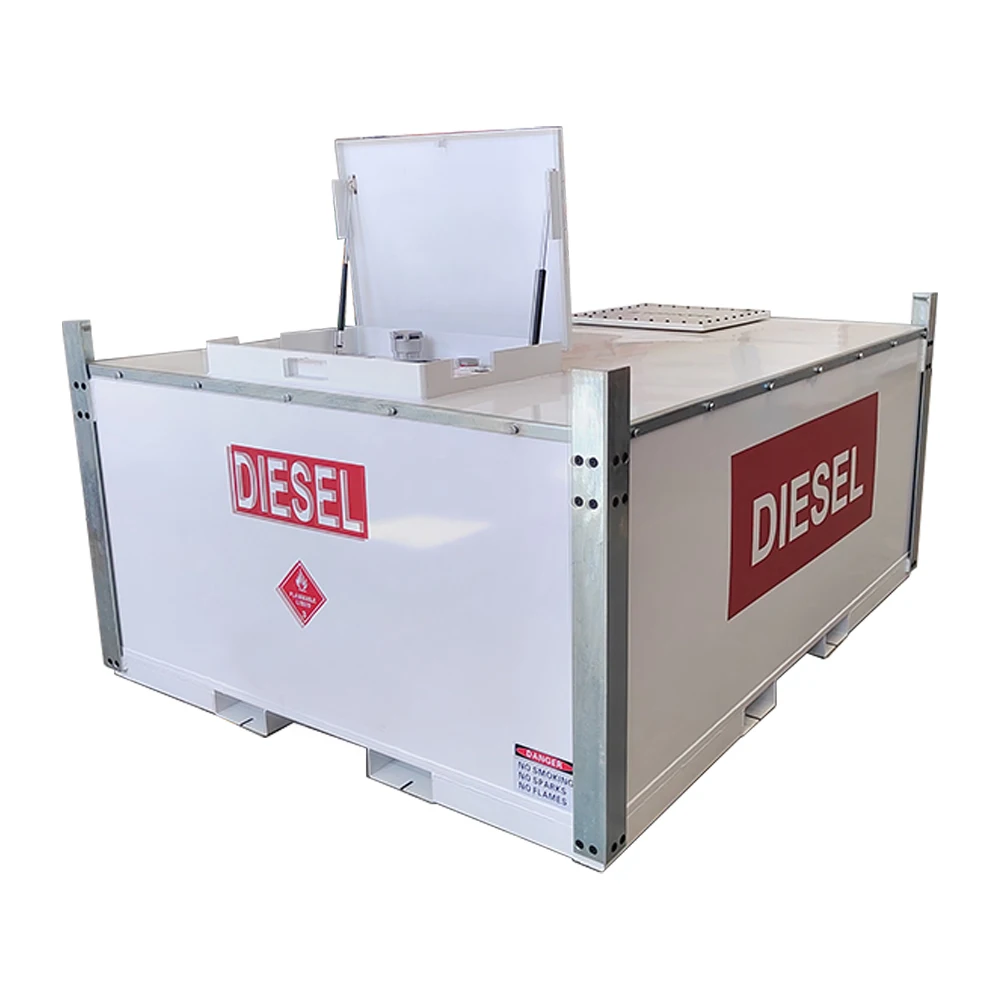Gasoline Fuelcube Storage Tank Sale For USA
The key parameters of Gasoline Storage Tank are essential for its safe and efficient operation. Here are some of the main key parameters:
1. Volume
This is an important parameter of the storage tank, which determines the maximum amount of gasoline it can store. The choice of volume is usually determined based on the actual needs of the gas station or oil storage depot, site conditions, and future development plans.
2. Working pressure
The gasoline storage tank needs to work within a certain pressure range. Generally speaking, the working pressure of the atmospheric pressure tank is usually between - 0.02MPa and 0.02MPa. If it is a pressurized storage tank, its working pressure will vary depending on the specific design and use requirements, and may be between 0.1MPa and 1.0MPa or even higher. The design of the working pressure should take into account the volatility characteristics of gasoline, the storage environment, and safety factors.
3. Design temperature
The design temperature of the storage tank needs to take into account the local climatic conditions and the temperature changes of gasoline during storage. Generally, the design temperature range of gasoline storage tanks is around - 20℃ to 50℃. In high-temperature areas, it is necessary to consider the insulation and cooling measures of the tank body to prevent the gasoline from volatilizing or causing safety hazards due to excessive temperature; in low-temperature areas, it is necessary to consider the insulation and anti-condensation measures of the tank body to ensure that the gasoline can be stored and transported normally.
4. Material
The material of the storage tank directly affects its corrosion resistance, strength and service life. Commonly used materials include carbon steel, stainless steel, etc. Carbon steel has a low cost, but its corrosion resistance is relatively poor, and it needs to be well treated with corrosion protection; stainless steel has good corrosion resistance and strength, but the cost is high. For the storage of high-purity gasoline or strict requirements on impurity content, stainless steel storage tanks are usually selected.
5. Filling coefficient
The filling coefficient refers to the ratio of the actual volume of gasoline filled in the storage tank to the volume of the storage tank. Generally speaking, the filling coefficient of a gasoline storage tank is usually between 0.85 and 0.9, leaving a certain space for the expansion of gasoline and avoiding safety risks caused by overfilling.
https://www.sumachine.com/
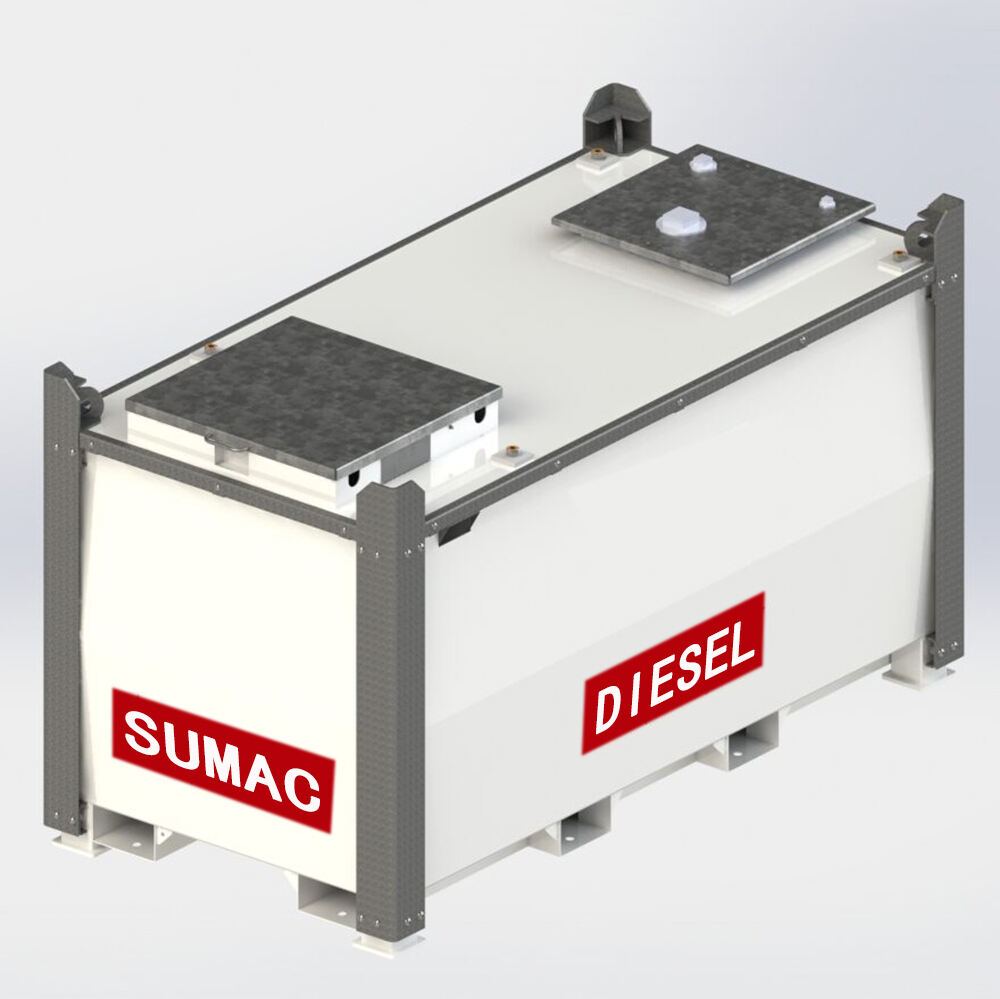
Recommended Products
Hot News
-
Double wall portable diesel gasoline cube tank with pump sale for Mauritius
2024-11-11
-
Double Walled Portable Fuel TransferCube Tank Ship To Spain
2024-11-07
-
Shipping of portable aviation fuel tank with pump
2024-10-12
-
Carbon steel diesel fuel cube tank ship to USA
2024-11-14
-
Carbon steel cube tank with pump
2024-11-13
-
Fuel Transfer Tank Cube Stationary Double Walled Diesel Storage Tank Sale For Spain
2024-11-06
-
251 US Gallon 552 Gallon Fuel Cube Transfer Tank Sale For USA
2024-11-05
-
251-2000 Gallon Fuel Cube Transfer Tank Sale For Grenada
2024-11-01
-
552 Gallon portable fuel dispenser with tank sale for USA
2024-10-30
-
Mobile fuel tank with pump sale for Spain
2024-10-22
 EN
EN
 AR
AR
 BG
BG
 HR
HR
 CS
CS
 DA
DA
 NL
NL
 FI
FI
 FR
FR
 DE
DE
 EL
EL
 IT
IT
 JA
JA
 KO
KO
 NO
NO
 PL
PL
 PT
PT
 RO
RO
 RU
RU
 ES
ES
 SV
SV
 TL
TL
 ID
ID
 LT
LT
 SR
SR
 SK
SK
 SL
SL
 UK
UK
 VI
VI
 HU
HU
 TH
TH
 TR
TR
 MS
MS
 GA
GA
 IS
IS
 KA
KA
 HT
HT
 KK
KK
 UZ
UZ


